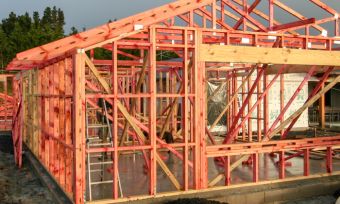Do you really need to use a mortgage broker? If you’re after a home loan, it’s a valid question. For when it comes to mortgages, there’s really only one thing most of us care about: interest rates.
Sure there are differences in rates between lenders, and some differences between mortgages. But there aren’t that many lenders or mortgage products available in New Zealand.
According to the latest Reserve Bank statistics, the Big Five banks currently have over $336.2bn of home loans sitting on their books. This compares to just $18.1bn collectively for the next six biggest lenders:
The Big Five banks
| Lender | Home Loans |
| ANZ | $108,150m |
| ASB | $74,401m |
| Westpac | $67,209m |
| BNZ | $59,589m |
| Kiwibank | $26,945m |
| TSB | $6408m |
| SBS | $4340m |
| Co-op | $3025m |
| Bank of China | $2127m |
| Heartland | $1403m |
| China Construction Bank | $872m |
And thanks to Canstar’s great home loan comparison tools, it’s super simple to hunt down the banks and mortgages offering the lowest rates.
However, if you’re self-employed and need a low-doc loan, or you’re a first-home buyer with limited financial knowledge, a mortgage broker’s expertise and guidance can help smooth the home-buying process.
And even an established home owner with a salaried income could benefit from a mortgage broker’s expert knowledge and negotiating skills to help them secure a better interest rate.
So if you’re interested in engaging the services of a mortgage broker to secure a better deal on your mortgage, read on to discover all you need to know about what mortgage brokers have to offer:
Lowest Mortgage Rates in NZ
The table below displays some of the 1-year fixed-rate home loans on our database (some may have links to lenders’ websites) that are available for home owners. This table is sorted by current interest rates (lowest to highest), followed by company name (alphabetical). Products shown are principal and interest home loans available for a loan amount of $500K in Auckland. Before committing to a particular home loan product, check upfront with your lender and read the applicable loan documentation to confirm whether the terms of the loan meet your needs and repayment capacity. Use Canstar’s home loan selector to view a wider range of home loan products. Canstar may earn a fee for referrals.
Compare Lowest Home Loan Rates for Refinancing
What is a mortgage broker?
A mortgage broker is a financial adviser who specialises in helping people find a home loan. They can also manage the application process for you and provide tailored advice along the way, helping you secure the loan.
What does a mortgage broker do?
A mortgage broker is essentially a conduit between you and the lender. Their first job is to assess your financial affairs, put together a picture of your credit-worthiness, and help you determine what type of home loan is right for you.
They should offer you a variety of home loan options from the panel of home loan lenders they act for. Remember that brokers generally don’t offer you mortgages from all lenders. They only represent a limited number of financial institutions.
A good mortgage broker should spend time understanding your home-ownership goals, clearly explain your options and help you with the paperwork.
Why use a mortgage broker: the pros & cons
As a go-between for borrowers and lenders, mortgage brokers can be very useful if you aren’t confident in your understanding of finance or mortgaging. They’re especially helpful if you aren’t an existing homeowner with a well-documented income source.
For example, if you are self-employed or an investor, a lender will typically want to see more evidence of your financial status. A mortgage broker can assist you pull together the paperwork and help at every stage of the application process.
However, before you rely on the expertise of any financial advisor, it’s important to carefully consider their credentials. Do they have the relevant qualifications and experience necessary to find you the best mortgage product.
Pros of using a mortgage broker
- A mortgage broker can be an invaluable resource for those with a poor understanding of the finance and mortgage industry, or their own financial affairs
- A broker may be able to find you a mortgage that’s better for your individual situation and affairs
- If you don’t have the time to do the extensive research required to properly assess the variety of home loan products available, a mortgage broker can do this for you (within the panel of products they sell)
- Because a broker works across a number of loan products, they will be able to give you a clear picture of any incentives/deals being offered by lenders for your business
Cons of using a mortgage broker
- Mortgage brokers act on behalf of the lenders that pay them and, as a consequence, may only show you products from a small number of providers. This may not give you a fair idea of the range of suitable products
- Educational qualifications and industry experience can differ widely between brokers, so make sure to enquire about this before you engage the services of any mortgage broker. All mortgage brokers must be Authorised Financial Advisers. You can check their credentials at the Financial Market Authority’s website
What to ask a mortgage broker
1. How many lenders do they deal with? There is no point in going to a mortgage broker that recommends products from only two or three lenders. You could compare far more products than that by yourself, quickly and easily, by using our home loans tables. It’s also worth asking whether they’ve a bias towards any particular lender and, if so, why.
2. What are their fees and commissions? The question above leads naturally to this: how much commission do they receive for referring your business to a lender? Although most mortgage advisers provide their services for free, some do charge a fee, so it’s best to check this when you meet. If your broker is an Authorised Financial Adviser, which they should be, they are also legally required to tell you about their fee and commission details.
3. What will your additional costs be? As we mention above, although most brokers don’t charge fees, there are plenty of other costs associated with securing a mortgage. For example: loan application fees, property valuation fees and, possible, lenders’ mortgage insurance. It’s a good idea to discuss these costs with your broker at the start of the loan application process.
Does your broker understand your needs?
It’s great to ask your mortgage broker lots of questions, but you’ll need to answer some, too. In order for them to recommend a suitable loan, they’ll need to understand your requirements.
Why are you looking for a loan? Are you going to stay in the property for a long time? Are you planning renovations? Giving your broker a sense of your goals will help them find a loan that suits your needs.
Regardless of whether you decide to work with a mortgage broker or not, you can compare home loans available on the market with Canstar. To read more about our five-star home loan awards click here, or to compare rates using our free mortgage comparison tool hit this button:
Compare home loan rates for free with Canstar!
About the author of this page
This report was written by Canstar’s Editor, Bruce Pitchers. Bruce has three decades’ experience as a journalist and has worked for major media companies in the UK and Australasia, including ACP, Bauer Media Group, Fairfax, Pacific Magazines, News Corp and TVNZ. Prior to Canstar, he worked as a freelancer, including for The Australian Financial Review, the NZ Financial Markets Authority, and for real estate companies on both sides of the Tasman.





Share this article